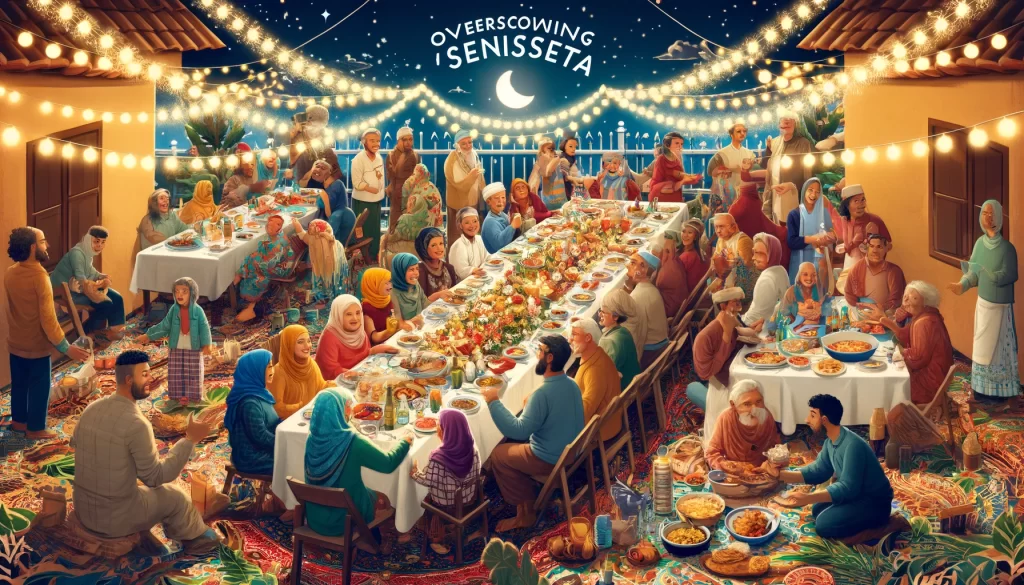Senisieta: Meaning and Prevention

So, “Senisieta” is a term you might not hear daily. It’s all about the drama and tension that sometimes bubble up at family get-togethers or big community celebrations. Think of those times when old feuds come out of hiding, or everyone suddenly becomes an expert on tradition, leading to heated debates or even full-on arguments.
Causes of Senisieta
Several factors contribute to the emergence of Senisieta, including:
- Interpersonal Conflicts: Senisieta can result from pre-existing tensions or unsolved issues between individuals or families that get worse during social events.
- Cultural Differences: When people clash over different ways of doing things or celebrating, it can get pretty tense.
- External Stressors: External factors such as financial strain, societal pressures, or personal challenges can heighten emotions and contribute to Senisieta during gatherings.
- Lack of Communication: Weak or incorrect communication between members of the community may lead to misunderstandings and escalate tensions during traditional events.

How to Avoid Senisieta
Preventing Senisieta requires proactive measures aimed at promoting understanding, communication, and conflict resolution within the community. Here are some strategies to avoid Senisieta:
- Open Dialogue: Encourage open and honest communication among community members to address concerns, clarify misunderstandings, and foster mutual respect.
- Conflict Resolution: To stop tensions from rising during events, establish methods for peaceful resolution of conflict, such as mediated talks or mediation.
- Cultural Sensitivity: Promote cultural sensitivity and awareness to minimize misunderstandings or conflicts arising from divergent cultural interpretations or practices.
- Community Engagement: Engage community members in collaborative decision-making processes regarding traditions, rituals, or event planning to ensure inclusivity and consensus.
- Preparation and Planning: Possible reasons for conflict can be reduced with proper planning and preparation for traditional gatherings, which includes defining roles, responsibilities, and expectations in clear terms.
- Emotional Awareness: To prevent increased feelings from turning into conflict during events, community members should be encouraged to practice emotional awareness and self-control.

Conclusion
Dealing with the root causes of tension, spreading some cultural understanding, and making sure everyone feels part of the team can transform those gatherings back into the fun, joyful occasions they’re meant to be. It’s all about celebrating together, not getting caught up in the drama.
FAQs
Q: What exactly is ‘Senisieta’?
A: Imagine you’re at a big family dinner, and suddenly, out of nowhere, an argument starts over something minor, like how the pie should be sliced. That tension or disagreement that pops up? That’s Senisieta for you. It’s the drama that sometimes surfaces during special gatherings or celebrations.
Q: Why does Senisieta even happen?
A: A few reasons, really. It could be old family beef that has yet to be sorted out, different opinions on how things should be done, stress from outside life crashing the party, or just plain old miscommunication.
Q: Can Senisieta be avoided? How?
A: Absolutely! Talking things through openly before the event can clear the air. Having a game plan for dealing with disagreements peacefully helps, too. Plus, understanding and respecting each other’s views on traditions and being inclusive when planning the event can make a huge difference.
Q: What’s the best way to deal with Senisieta when it happens?
A: First, try to stay calm and not add fuel to the fire. Encourage everyone to take a breath and discuss things more calmly. Having a neutral person to help mediate can also be a game-changer.
Q: Is Senisieta all bad, or can it be a good thing too?
A: While it sounds all negative, dealing with Senisieta can actually bring issues that need sorting to the surface. It’s all about how you handle it. If it leads to open, constructive conversations, it might clear up long-standing misunderstandings.
Q: How can I help someone else who’s dealing with Senisieta?
A: Being a supportive listener can go a long way. Sometimes, just being there for someone to vent to is enough. Other times, offering to mediate or help talk through the issues is helpful.